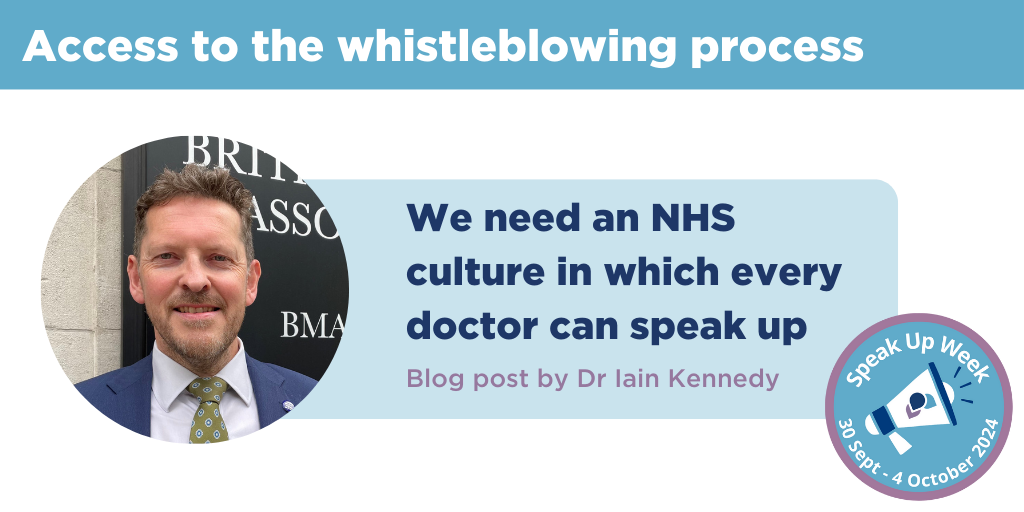
The benefits of fostering a culture of openness in healthcare organisations are clear – it results in better patient outcomes and enhances the well-being of employees. Improvements in patient safety, patient experience, staff morale and cost reductions have all been highlighted in studies.
However doctors in Scotland face challenges in speaking up within the NHS - and it’s clear some doctors face more difficulties in speaking up than others.
I recently carried out research as part of an MBA which looked at doctors and their experiences of whistleblowing in Scotland. The overall results painted a shocking picture – most whistleblowers (87%) surveyed as part of the study encountered challenges to speaking up about concerns in the NHS. Less than one in five (17%) were satisfied with their organisation’s response to whistleblowing.
Just over half (51%) of doctors surveyed had experience of whistleblowing, with patient safety the most common reason for doing so. However repercussions of doing so included bullying by managers, questioning of mental state, workplace marginalisation, and negative peer response.
Against this alarming backdrop, another key finding was that whistleblowing is influenced by age and race - with older and white doctors more likely to report issues.
This highlights the unique challenges faced by minority groups and sadly reflects an NHS system which repeatedly tells doctors from ethnic minority backgrounds their experiences are less valued than those of white colleagues. Past studies have highlighted ethnic minority doctors’ concerns around fears of marginalisation, of repercussions for reporting concerns – particularly around allegations of discrimination – and racial microaggressions. There is also scepticism about how much of a priority organisations really give to race equality.
So it’s unsurprising that ethnic minority doctors should be reluctant to take the often very difficult step of coming forward with a concern within their organisation. Ethnic minority doctors who took part in the research spoke of their fears around not being taken seriously and a negative backlash if they were to whistleblow. One even said that raising concerns was equivalent to “digging the grave”. Dr Sajid Farid, chair of the BMA’s Scottish Race Equality Forum, explains the particular challenges for this group:
“Ethnic minority doctors, particularly International Medical Graduates (IMGs), are afraid to speak up as they feel that their voices will not be heard. [They] lack knowledge of whistleblowing procedures and can have communication challenges. They also experience more ‘dignity at work’ issues [and] are subject to more GMC referrals and often feel that they are not regarded as part of the NHS but rather just used until they are no longer needed.”
So how can we improve this situation? NHS boards must implement whistleblowing procedures guaranteeing whistleblower anonymity and protection and which encourage reporting without fear of retaliation. This must include support for non-white – and younger – doctors in particular.
We also need to see a wider shift in the NHS to a culture which is based on feedback and learning, not blame and finger pointing. This needs to start at the very top and the Scottish Government must take action to foster a culture which prioritises patient safety and staff well-being rather than health boards instead simply trying to do everything they can to manage their reputation.
We must all work towards a culture of openness in the NHS – and that must be one in which every doctor feels confident that they can speak up.
Dr Iain Kennedy
British Medical Association